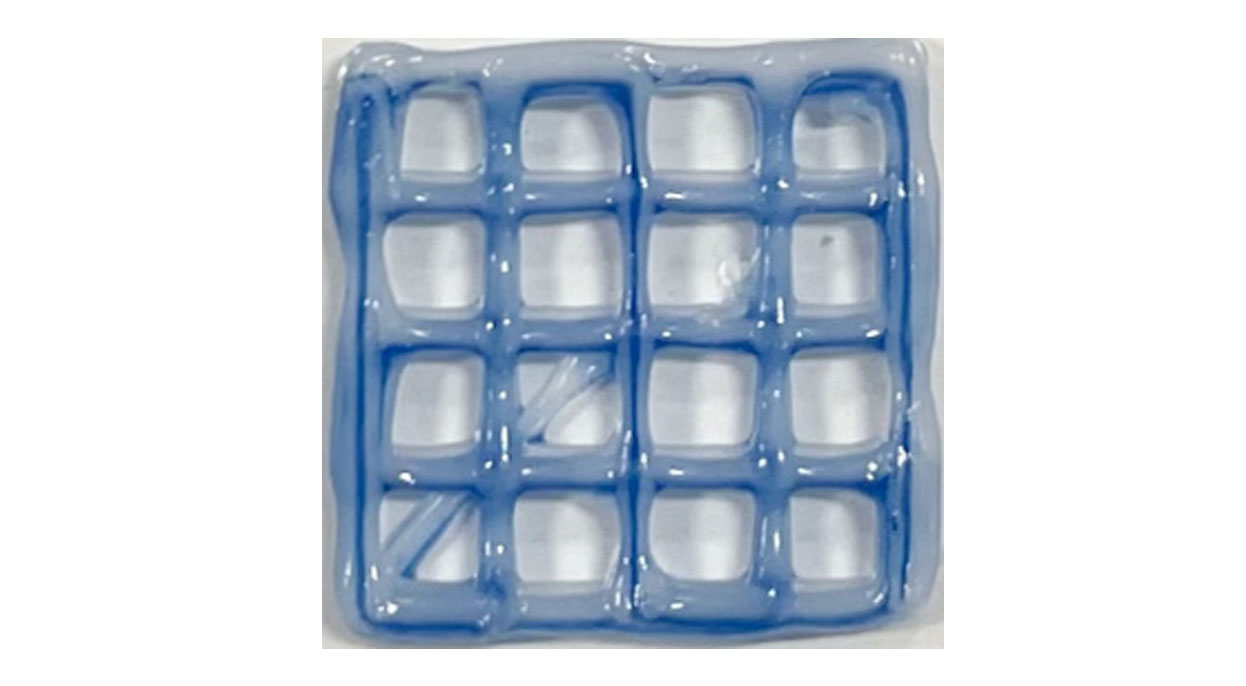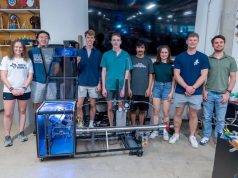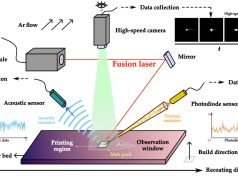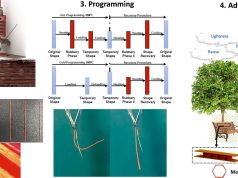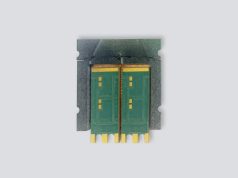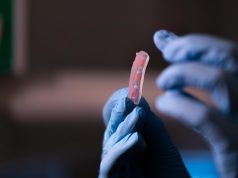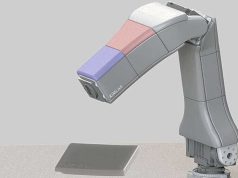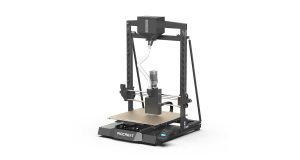Researchers at Queen’s University Belfast have developed a new 3D-printed dressing, called a scaffold, that is an innovative treatment for healing diabetic foot ulcers (DFUs).
This groundbreaking work, published in Biomaterials Advances, uses a combination of lipid nanoparticles and hydrogels to create skin-like scaffolds loaded with antibiotics.
The process not only improves treatment outcomes, but is also more sustainable, efficient and cost-effective because these dressings can be made directly in the hospital. The approach also reduces time for medical staff and improves patient care by providing constant wound monitoring.
Diabetes, a lifelong disease, is one of the top ten causes of death worldwide. Approximately 25% of diabetics are affected by DFU, a serious complication that often leads to amputations.
The use of drug-loaded dressings to treat DFU has already proven effective. This new scaffold uses two different bioinks in one filament, with an inner core of a nanocomposite hydrogel and an outer shell of a hybrid hydrogel.
Commenting on the importance of this study, Professor Dimitrios Lamprou, lead on the project and Chair of Biofabrication and Advanced Manufacturing from the School of Pharmacy at Queen’s University Belfast, said: “This innovative, personalised, and sustainable approach, provides the healing needed for the diabetic foot ulcers, to avoid any complications, and enables doctors to monitor the healing constantly. This avoids needing to remove dressing constantly, which can provoke infection and delay the healing process. Medical professionals also do not need to change the drug dosage as this double release, supports that need.”
Dr Matthew Wylie, Lecturer from the School of Pharmacy at Queen’s University Belfast and responsible for the in vitro antibacterial activity evaluation of these novel bandages, said: “Diabetic foot ulcers are chronic wounds highly susceptible to infection which can lead to limb- or life-threatening complications. Our natural liposomal antibacterial approach has shown promising initial antibacterial results highlighting the potential of this strategy to prevent bacterial colonisation during the crucial early stages of wound healing, as well as longer term protection of the wound. Improved wound management will not only enhance patient quality of life but could reduce the need for traditional antibiotic therapy, a key aim in the fight against antimicrobial resistance development.”
The research team was led by Professor Dimitrios Lamprou from the School of Pharmacy at Queen’s University Belfast, in collaboration with Ms Costanza Fratini (Erasmus Visitor), Mr Edward Weaver (PhD Student from the School of Pharmacy at Queen’s), Dr Sofia Moroni (PhD Student between Queen’s University and the University of Urbino Carlo Bo), Ms Robyn Irwin (PhD Student from the School of Pharmacy at Queen’s), Dr Yahya Dallal Bashi (Postdoctoral Researcher from the School of Pharmacy at Queen’s), Dr Shahid Uddin (Industrial Collaborator), Professor Luca Casettari (University of Urbino Carlo Bo), and Dr Matthew Wylie from the School of Pharmacy at Queen’s.
Subscribe to our Newsletter
3DPResso is a weekly newsletter that links to the most exciting global stories from the 3D printing and additive manufacturing industry.



